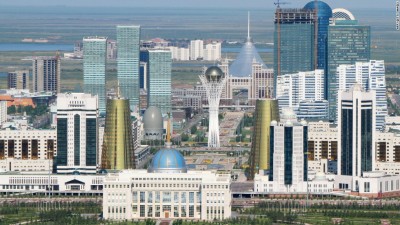De-escalation Zone Memorandum – Decisive Step Towards Peace in Syria?

Following the results of the fourth round of Syrian talks in Astana the representatives of guarantor-states (Iran, Russia and Turkey) signed a memorandum on de-escalation zones in Syria.
According to the agreement, the de-escalation zones are to be created in the provinces of Idlib, Hama, Aleppo, northern part of Homs, Eastern Ghouta, Daraa and Quneitra for six months, with the option of further prolongation.
The memorandum, which comes into effect on May 5, envisages the cessation of hostilities between the sides, conditions for returning refugees, the restoration of destroyed urban infrastructure and the access of humanitarian organizations. Moreover, the checkpoints to control the movement of civilians and the ceasefire regime will be created along the de-escalation zone borders.
It is notable, that the agreement doesn’t apply to Islamic State and Hayat Tahrir al-Sham terrorists, it doesn’t depend on whether they are inside a zone or not.
Moreover, the flights of the U.S.-led International Coalition are strictly forbidden in the area. The airspace will be also controlled by the guarantor-states.
The treaty caused positive reaction of the world community. In general, UN Secretary-General Antonio Guterres highly appreciates the achievement of the guarantor-states. He also believes, that the memorandum should really improve the citizens’ lives.
The head of the Syrian delegation in Astana Bashar Jaafari expressed gratitude to the efforts of Kazakhstan, Iran and Russia, as the memorandum opens new opportunities for the political settlement of the crisis.
Even Saudi Arabia Foreign Minister Adel bin Ahmed Al-Jubeir supports the creation of de-escalation zones.
Unfortunately, during the signing of the memorandum a number of the opposition delegates opposed the peacekeeping initiatives. The actual initiatives of the opposition are unknown. As a mark of protest, a number of the “opposition delegates” decided to leave the room, referring that the adoption of the document violates the territorial integrity of Syria. In addition, the armed opposition insists that Iran can’t be a guarantor state and they don’t adduce any weighty arguments.
It sounds strange that the “opposition” has rejected the memorandum. The primary target of guarantor states’ initiative is the protection of civilians, and as it is temporary, it won’t affect Syria’s sovereignty. That’s why the actions of the armed opposition can show to the world community that they are not interested in the fast settlement of the crisis. In this case the armed opposition doesn’t differ from ISIS or Hayat Tahrir al-Sham.
That’s why the guarantors have taken the initiative to save Syria as the hesitation of the Syrian government’s opponents is a heavy burden for the country – innocent people keep dying and the civilian infrastructure is being damaged.

